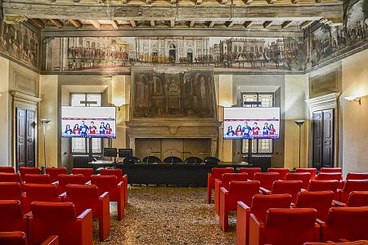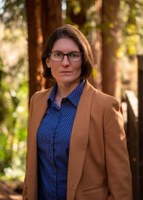Wild by Design: Caring for Biodiversity In a Changing World
The necessity of a model of ecological restoration aligned with social justice

-
Date: 28 MAY 2024 from 17:30 to 19:00
-
Event location: Sala Rossa, Palazzo Marchesini, Via Marsala, 26 - Bologna - In presence and online event
-
Type: Lectures
The question of how to reverse human-caused ecological damage is the most pressing of our century. Confronted with climate change, persistent pollution, and other extraordinary challenges, species are struggling. It is increasingly clear that global change necessitates new ways of caring for species, including ecological restoration. Dr. Martin will discuss how the history of ecological restoration should guide its future, calling for restoration as a form of social justice. She argues that restoration represents a more hopeful path than preservation. Restoration acknowledges human agency, and in particular the human ability to co-design the wild. Today governments, nonprofits, and other institutions spend billions of dollars each year to remove invasive species, build wetlands, and reintroduce species. But ecological restoration has not always been so intensively practiced. Early restoration was often deeply unjust: For instance, the first restoration sites in the United States were established on reservation land that the federal government was dismantling in order to erode Native American sovereignty. Today, carbon offsetting projects routinely violate human rights. Understanding this pattern is essential to designing a new mode of ecological restoration that is aligned with social justice. Rather than separating nature from culture, we must ask who benefits from a restoration project and who is harmed by it, as well as who gets to decide where and how restoration happens.
DO YOU WANT TO ATTEND THIS lecture?
-
Sala Rossa, Palazzo Marchesini, Via Marsala, 26 - Bologna
If you prefer to attend this lecture in presence, you should write to segreteria.isa@unibo.it within May 28, 12 p.m. and book your place. The places will be assigned on “first come first served” basis.
Please note that the building is not equipped so as to facilitate access for wheelchair users or people with mobility issues.
PhD students and researchers who are interested may request an attendance certificate by writing to segreteria.isa@unibo.it specifying their birthplace and date of birth.
The delivery of the attendance certificate requires the attendance of at least 70% of the lecture.
